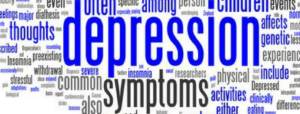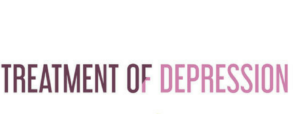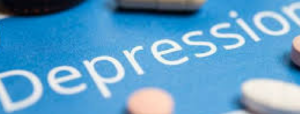
Depression is a common and serious medical illness that negatively affects how you feel, the way you think and how you act. Fortunately, it is also treatable. Depression causes feelings of sadness and/or a loss of interest in activities once enjoyed. It can lead to a variety of emotional and physical problems and can decrease a person’s ability to function at work and at home. Depression is among the most treatable of mental disorders. Between..

Depression is a common and serious medical illness that negatively affects how you feel, the way you think and how you act. Fortunately, it is also treatable. Depression causes feelings of sadness and/or a loss of interest in activities once enjoyed. It can
lead to a variety of emotional and physical problems and can decrease a person’s ability to function at work and at home.
Depression is among the most treatable of mental disorders. Between 80% and 90% of people with depression eventually respond well to treatment. Almost all patients gain some relief from their symptoms.

Depression Symptoms
- Feeling sad or having a depressed mood
- Loss of interest or pleasure in activities once enjoyed
- Changes in appetite — weight loss or gain unrelated to dieting
- Trouble sleeping or sleeping too much
- Loss of energy or increased fatigue
- Feeling worthless or guilty
- Difficulty thinking, concentrating or making decisions
- Thoughts of death or suicide
Symptoms must last at least two weeks for a diagnosis of depression.

Depression Treatment
Before a diagnosis or treatment, a health professional should conduct a thorough diagnostic evaluation, including an interview and possibly a physical examination. In some cases, a blood test might be done to make sure the depression is not due to a medical condition like a thyroid problem. The evaluation is to identify specific symptoms, medical and family history, cultural factors and environmental factors to arrive at a diagnosis and plan a course of action.
Medication:
Brain chemistry may contribute to an individual’s depression. For this reason, antidepressants might be prescribed to help modify one’s brain chemistry. These medications are not sedatives, “uppers” or tranquillizers. They are not habit-forming. Generally, antidepressant medications have no stimulating effect on people not experiencing depression. Antidepressants may produce some improvement within the first week or two of use. Full benefits may not be seen for two to three months. It is important to let your doctor know if a medication does not work or if you experience side effects.

Psychotherapy
Addressing the underlying emotional issues which cause the depressive state is an important component of a full and long-term recovery.

-
Cognitive behavioural therapy (CBT) has been found to be effective in treating depression. CBT is a form of therapy focused on the present and problem-solving. CBT helps a person to recognize distorted thinking and then change behaviours and thinking.

-
Progressive relaxation and hypnotherapy are also often implemented to help the patient manage their stress and anxiety symptoms and the sense of overwhelming.

-
EMDR When depression is a result of abuse or other traumatic experiences.EMDR has proven to be a very effective treatment.

